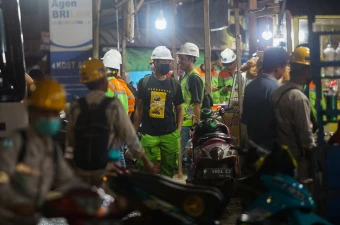CNV Internationaal and their Indonesian partner trade union KSBSI are in Brussels during the week of 9 July for the fifth round of negotiations for the CEPA free trade agreement (Comprehensive Economic Partnership Agreement) between the EU and Indonesia. They are working together with European and Indonesian social organisations and trade unions to discuss human rights with members of the European Parliament, the European Commission and the Indonesian negotiation delegation. In CEPA, extensive agreements are made which could have negative effects on existing Indonesian legislation and international standards regarding labour rights, health care, and the environment.
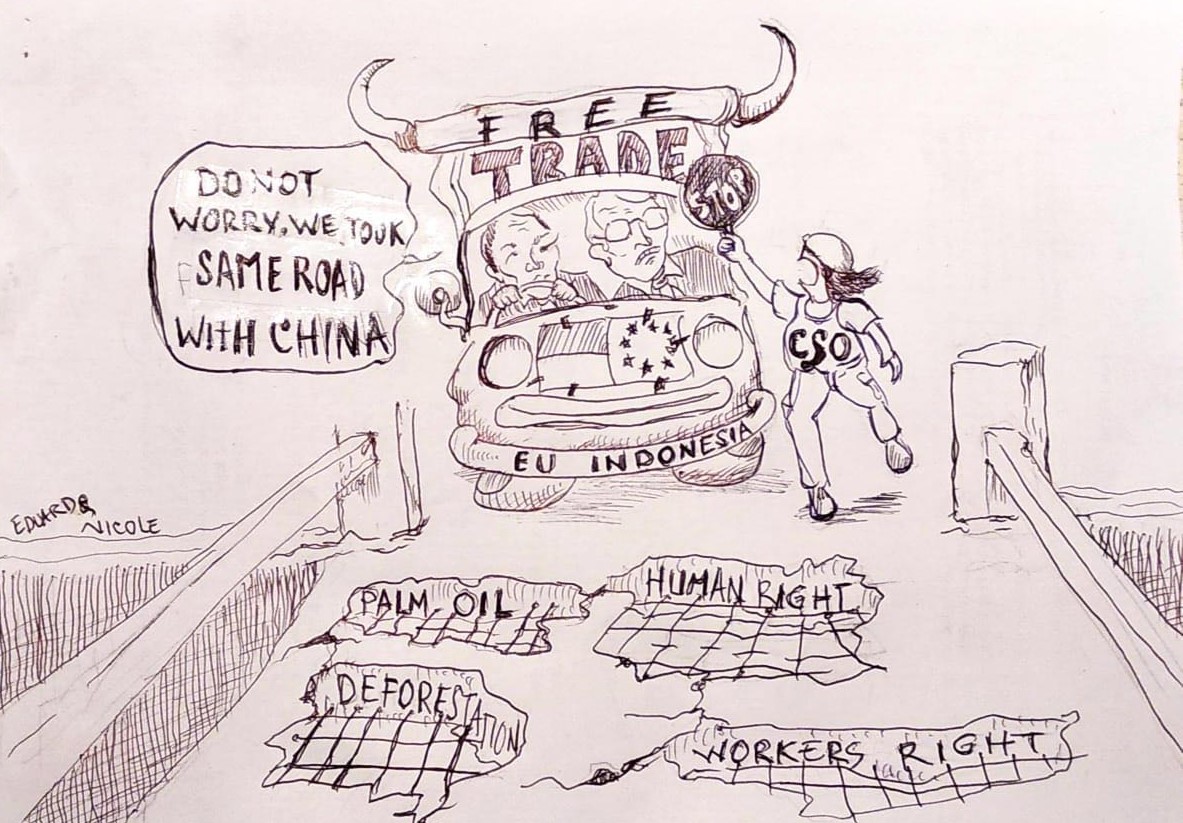
'The Bumpy Road to Sustainable and Equitable Trade’ (cartoon by Eduard Marpaung, General Secretary KSBSI )
Nicole Mathot, Senior Programme Officer for CNV Internationaal states,” Social organisations are in discussion with the Indonesian negotiation delegation regarding the importance of human rights in free trade agreements. Unfortunately, the European delegation didn’t take time to meet with us.”
Mathot is worried about a lack of transparency in the negotiation process. “Hardly any information is available about what is happening in the negotiations, and even the dates of this negotiation round haven’t been published anywhere.”
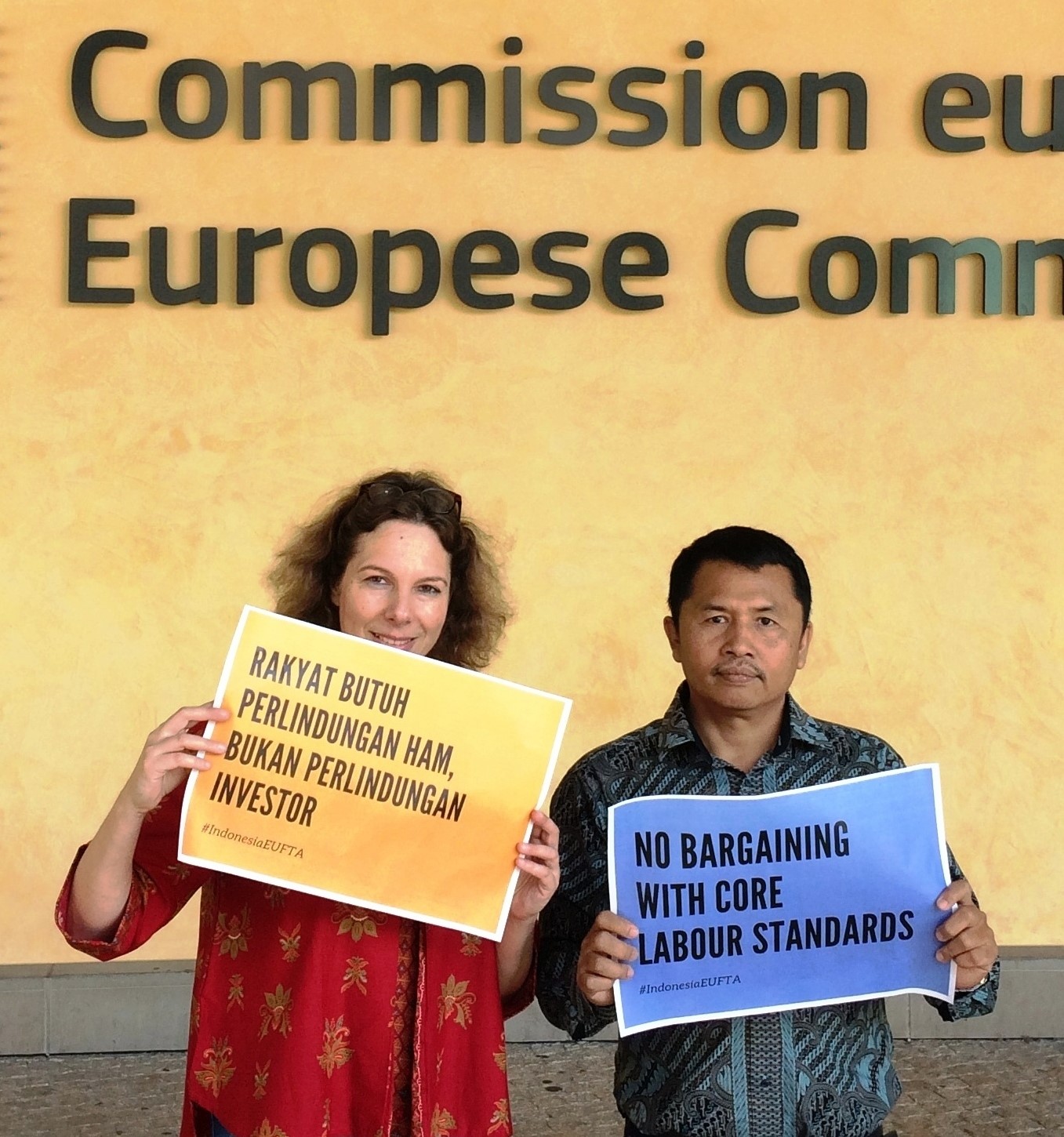
"No bargaining with core labour standards", Eduard Marpaung (Indonesian trade union KSBSI) and Nicole Mathot (CNV Internationaal) at the European Commission in Brussels.
According to the Indonesian trade union leader Eduard Parsaulian Marpaung (KSBSI), palm oil is a sensitive issue in the CEPA negotiations. “Social organisations feel that issues related to palm oil should be solved elsewhere, not within the parameters of free trade agreements. Social organisations, governments and the private sector need to enter into a dialogue to find sustainable solutions.
Relevant parties, such as unions, must be involved in the monitoring processes for human rights and environmental issues in the palm oil industry.” Victims of human rights violations must be able to make their stories known and receive compensation for their suffering. This should take place through an independent complaint mechanism.
Violations of labour rights occur on a large scale in the palm oil industry. Also, in ‘Special Economic (export) Zones’ or in the industrial zones with a ‘National Vital Object’, ILO core labour standards are often ignored. The Indonesian government is considering to categorise palm oil plantations as special zones.
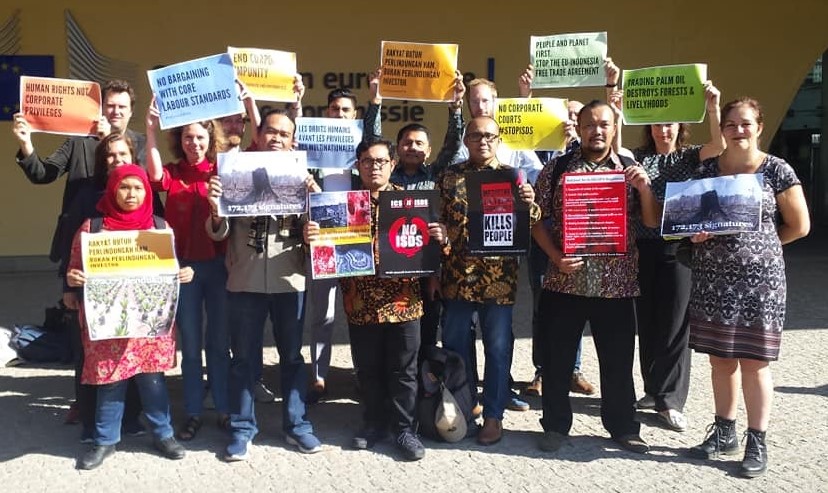
Petition: 185,000 European Signatures
To reinforce the call from concerned Indonesian citizens to keep palm oil out of the free trade negotiations, more than 185,000 Europeans have signed a petition. This petition will be presented to the cabinet of the European Commissioner for Trade, Cecilia Malmström, on 11 July.
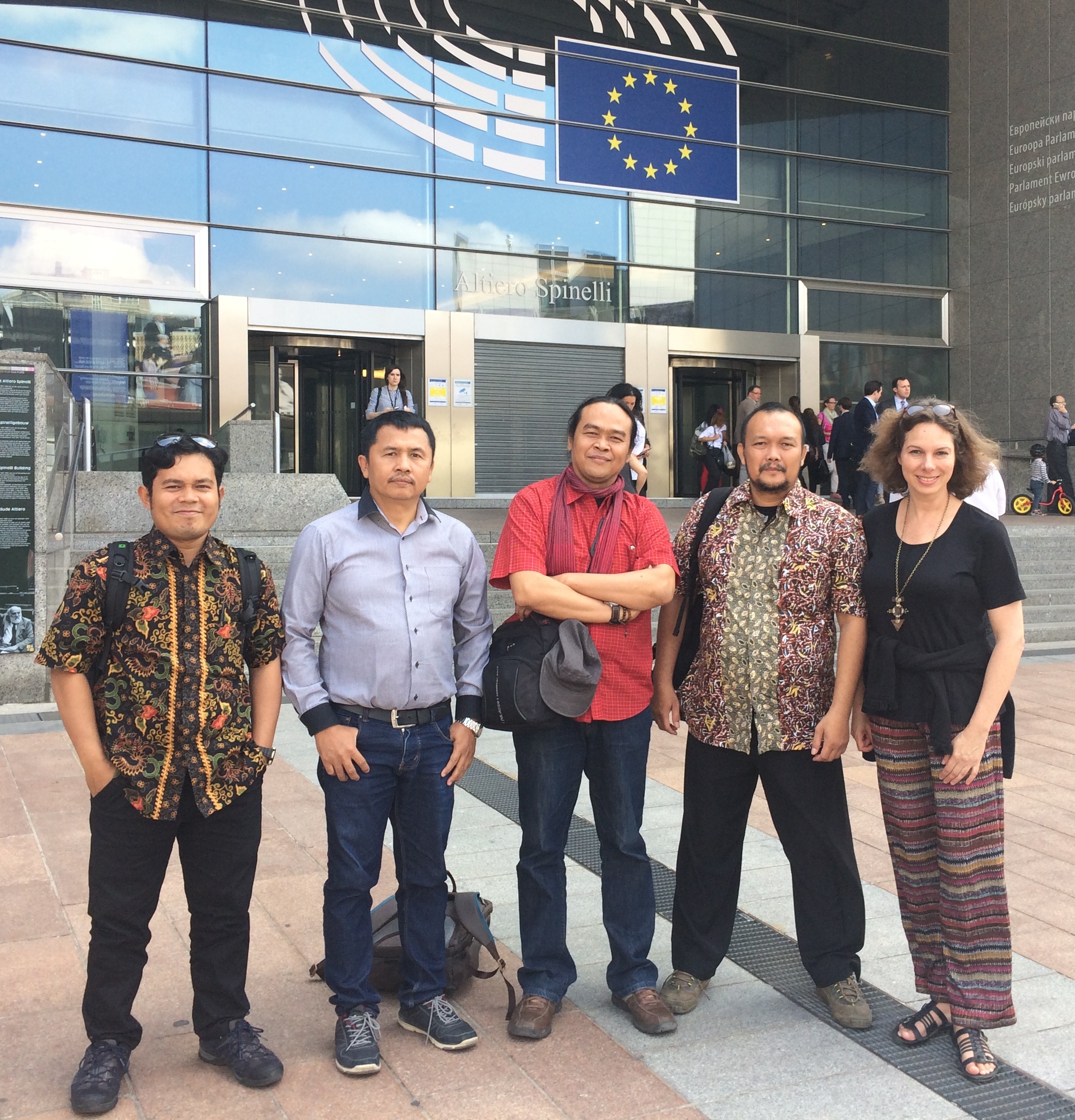
Social organisations share experiences with Dutch members of the European Parliament Agnes Jongerius and Anne-Marie Mineur.
Publication date 11 07 2018
